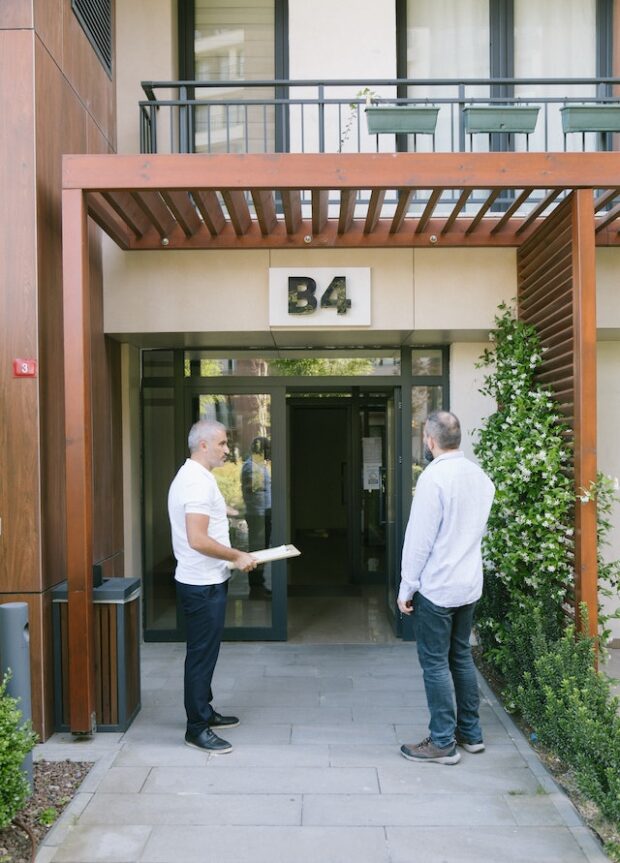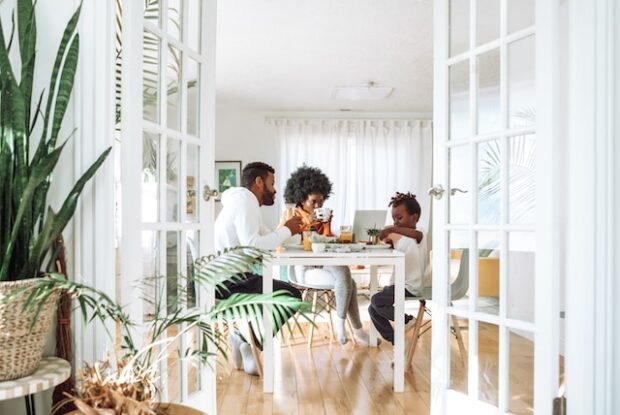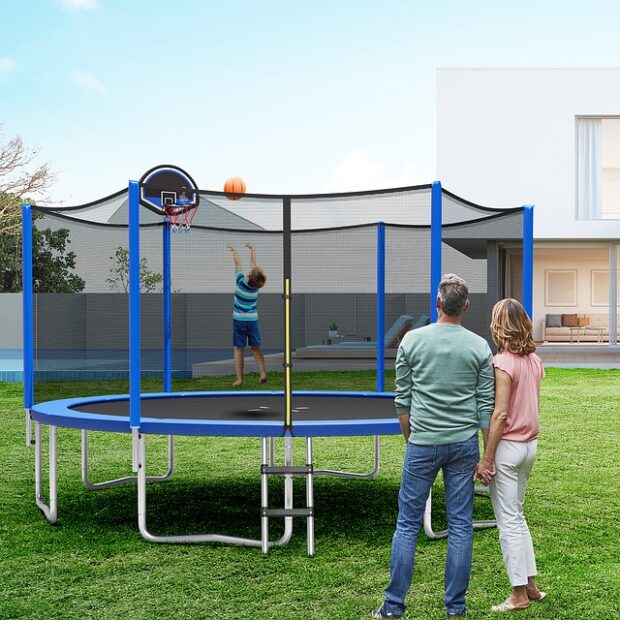Are you trying to decide between buying a home or renting one? It can be an intimidating process, especially if you’re unfamiliar with the real estate market. But don’t worry — it doesn’t have to be overwhelming! As a housing expert and analyst, I’m here to help guide your decision-making process so that you feel confident in whatever option you choose.
In this article, we’ll look at the pros and cons of both buying and renting a house. We’ll also explore some factors to consider when deciding what’s best for you and your family. Through careful research, analysis, and advice from experienced professionals like myself, you can confidently determine whether buying or renting is right for you.
Let’s get started by examining why homeownership may work better than renting in certain situations. With the right information on hand, making this important decision will become much easier!
Benefits Of Owning Your Own Home
Owning your own home can be likened to a safe haven – it provides stability and security for you and your family. Home ownership comes with many advantages; from potential tax benefits, appreciation of the property’s value over time, financial investment opportunities through equity growth, and much more. There are numerous benefits to owning a home that make it an attractive option compared to renting.

When buying a house, homeowners have several options when it comes to their taxes. For example, they may take advantage of mortgage interest deductions or other exemptions associated with home ownership. Additionally, long-term owners of a property could benefit from capital gains tax exemptions if they sell the house at an increased price than what was originally purchased for – making it an excellent form of personal wealth building. According to strawhomes.com, owning a home is also seen as one of the most reliable investments in today’s market due to its steady rate of return regardless of external economic factors like recessions or inflationary periods. With all these benefits in mind, there are still important factors to consider before taking the plunge into home ownership…
Factors To Consider When Buying A Home
Buying a home is an important decision that requires thorough research and analysis. Before deciding whether to purchase or rent, it’s important to consider the many elements of homeownership such as mortgage payments, credit score, location considerations, tax benefits, and budgeting.
The most obvious advantage of buying over renting is building equity in real estate. Mortgage payments are typically lower than rental rates for similar properties. Furthermore, there can be significant tax benefits associated with owning a home. That said, buyers should weigh these advantages against their ability to make timely payments on time and maintain their desired lifestyle within their budget. It’s also important to note that factors like location are key when considering a property; desirable neighborhoods often come at premium prices but may help increase long-term value of your investment.

It’s essential for prospective buyers to understand all aspects of home ownership before taking the plunge. This includes getting pre-approved for a loan and running through personal financial scenarios so that you know what kind of commitment you’re signing up for before making any commitments. With careful consideration and due diligence, potential homebuyers can find out if they’re ready to take the leap into homeownership.
Comparing costs between buying vs renting is another crucial element in this decision process; both options have pros and cons depending on individual circumstances and goals.
Cost Comparison Of Buying Vs Renting
After considering the factors to make an informed decision when buying a home, it’s important to take a look at the cost comparison of renting vs owning in order to determine which is most beneficial for you.
When comparing rent vs own costs, there are various expenses that must be taken into account. Home purchase costs refer to things like down payments and closing costs associated with purchasing a house or condo. As a homeowner, you will also have additional expenses such as taxes, insurance coverage, repairs/maintenance and utilities. On the other hand, if you choose to rent instead of buy, your primary expense would be monthly rental fees plus any applicable utility costs.

The following bullet point list provides more insight on the cost comparison between buying and renting:
- Home Purchase Cost
- Down payment
- Closing Costs
- Taxes & Insurance Coverage
- Homeowner Expense
- Repairs & Maintenance
- Utilities
- Rent Expense
- Monthly Rental Fees
- Utility Costs (if applicable)
It’s clear that while homeowners carry greater financial burden upfront during their initial investment phase due to higher down payment requirements and closing costs compared to renters who pay lower upfront fees; however long-term benefits may outweigh these immediate costs depending on individual circumstances. When weighing up whether rent vs buy makes better financial sense for your situation consider both short-term and long-term consequences carefully before making a final decision. In light of this discussion about the pros and cons of each option let us now move onto examining advantages and disadvantages of owning a home.
Advantages And Disadvantages Of Owning A Home
Owning a home is an important decision and one that should not be taken lightly. Homeownership comes with both advantages and disadvantages, so it’s important to weigh the pros and cons before making this life-changing decision. On the plus side, homeownership provides financial security as well as potential equity appreciation over time. In addition, mortgage payments build up your equity in the house rather than someone else’s pocket. Furthermore, there are tax benefits associated with owning a home which can help you save money when filing your taxes each year.

On the downside of homeownership, maintenance costs can add up quickly if something goes wrong or needs replacing. Property taxes also need to be considered when budgeting for a new home purchase since they will likely increase annually based on market volatility. Lastly, any repairs needed around the house become your responsibility instead of relying on a landlord or property manager. Although these concerns might seem daunting at first glance, many people find that taking control of their living space makes them feel more secure and satisfied in their lives overall.
Tax Benefits For Home Owners
Owning a home has many advantages, but one of the most overlooked benefits is its potential for tax savings. Homeowners can reap major financial rewards from taking advantage of homeowner tax benefits, such as deductions in property taxes, mortgage interest payments and energy efficiency credits.
Real estate tax relief also provides significant assistance to homeowners. Property owners who live in their homes may qualify for reduced real estate taxes based on certain criteria related to age or income level. Additionally, when it’s time to sell your primary residence, you may be eligible for exemptions up to $250,000 if single and $500,000 if married filing jointly — potentially saving thousands in capital gains taxes owed at sale closing. Further incentives include energy efficient upgrades that make a home more environmentally friendly; these improvements can provide substantial federal tax credits which help offset some initial installation expenses.

Not only are there short-term money-saving opportunities available with owning a home; there are long-term investment value benefits associated with building equity through responsible ownership over time.
Long-Term Investment Value Of Home Ownership
When considering whether to buy a home or rent, it is important to consider the long-term investment value of owning property. Home ownership can provide significant financial gains over time due to real estate appreciation and market trends. The rate at which property values increase can be affected by economic conditions as well as other factors, such as location. In some cases, homeowners may experience substantial returns on their investments if they are able to sell their homes in areas where property values have risen significantly over time. Moreover, many people find that having an asset like a house provides them with more security than renting does.

For these reasons, buying a home should be seen as more than just paying monthly housing costs – it is an investment into one’s future financial stability and peace of mind. With this considered, it becomes clear why so many people view home ownership as an essential part of achieving their long-term financial goals. Transitioning now to the consideration of location considerations when deciding between buying a home or renting…
Location Considerations
When weighing the decision of whether to buy a home or rent, it is important to consider the location. Convenience and nearby amenities should be one of your top priorities when looking for a place to live. Be sure to research the crime rate in the area and local schools if you have children. Commute time should also be taken into consideration – this will directly impact your quality of life. Additionally, zoning regulations are something that must not be overlooked; understanding them can help you make an informed choice on what type of housing would best suit your needs. Finally, keep in mind the current state of the local economy as it could affect future property values. All these factors affect how well-suited a certain location is for buying versus renting a home.
Next, potential homeowners need to understand credit score requirements before they begin their search for a new home.

Credit Score Requirements
In a world where the American Dream of owning a home is so often romanticized, it’s important to be aware of the reality that lies behind this dream. Before you can even consider whether to buy or rent, one must understand the criteria for loan approval in order to assess if they are eligible. When applying for mortgage loans, lenders typically perform credit report checks and take into account credit score requirements as part of their loan approval criteria; thus having an impact on your ability to purchase a home. A good credit score will certainly help with getting approved for a home loan application, whereas lower scores could potentially result in no approval at all. Therefore, understanding the necessary qualifications before taking the plunge into purchasing a house is key. With an abundance of information available online about credit scores and how they influence various aspects of life such as obtaining housing, researching and making sure that you meet any standards set forth by banks should not be overlooked when considering buying versus renting.

Flexibility Of Renting
When it comes to renting, there is a great deal of flexibility. Renters have the freedom to move without having to worry about selling their home or dealing with complex contracts. Additionally, renters can take advantage of rentable flexibility and opt for short-term leases if desired; this gives them the ability to move on more quickly if they need to relocate due to job changes or other reasons. This provides an especially attractive option in comparison to buying a home that requires a long-term commitment and higher costs. Furthermore, renters are not responsible for maintenance or repairs when something goes wrong in the rental property – all these tasks fall under the responsibility of the landlord.

Flexible renting also offers protection against rising housing prices, as rental rates tend to be lower than mortgage payments over time. Thus, renting may be an ideal solution for those who don’t want to commit long term to living in one place yet still desire some stability while they decide where they would like to settle down permanently. With so many advantages, renting offers a viable alternative that should not be overlooked by potential homeowners looking for short-term housing solutions.
Short-Term Housing Solutions
When deciding whether to buy a home or rent, it’s important to consider all of your short-term housing options. Rental apartments are often the most cost-effective and flexible choice for those looking for temporary accommodation. Apartment hunting can be stressful, but there are plenty of resources available to help you find the right place and negotiate an affordable lease agreement. Renting also allows tenants more freedom when compared to purchasing a property; they’re not bound by long-term commitments and can switch locations easily if desired.
For individuals who intend on staying in one location only temporarily, corporate housing is another viable option worth exploring. Corporate housing offers many benefits such as fully furnished units with utilities included, ideal for business trips or relocations that require minimal setup time. Short-term rentals may also prove beneficial for those impacted by fluctuations in the housing market; this gives them time to observe price changes before committing to buying a house long term.

Considering all of these factors will help make sure you choose the best option for your needs. Before making any decisions regarding long-term purchases or leases, evaluate short-term solutions like rental apartments, corporate housing, and short-term rentals so that you have a better understanding of what works best for you financially and logistically. Setting a budget for mortgage payments is the next step towards determining if buying or renting is right for you.
Setting A Budget For Mortgage Payments
According to the Joint Center for Housing Studies at Harvard University, home prices have increased by 50 percent since 2000. As such, it is important to create a budget when considering mortgage payments. To make sure you stay within your means and avoid overspending on housing costs, here are some tips for setting up a budget for mortgage payments:
- Calculate the total amount of money that you can afford to put toward a mortgage payment each month.
- Consider other potential expenses associated with homeownership such as property tax, insurance and maintenance fees.
- Take into account any additional income or resources that might be available in order to determine what type of loan would best fit your financial situation.
- Research different lenders and compare their interest rates in order to find one that works best for you.
- Make sure to factor in an emergency fund so that unexpected costs won’t derail your plans down the line.

Creating a realistic budget before committing to a mortgage is essential! It will help ensure long-term financial stability while also providing peace of mind in knowing that you’re taking steps towards becoming a homeowner without overextending yourself financially. With this foundation set, it’s time to start searching for the right real estate agent who can assist you with finding the perfect home.
Finding The Right Real Estate Agent
When buying a home, it is important to find the right real estate agent. A buyer’s agent will help you with house hunting and navigating through all of the paperwork that comes along with purchasing a property. They can also provide advice on finding a mortgage broker who may be able to offer better rates than banks or other lenders. When looking for an agent, consider their experience in the field, as well as if they have any specialties such as first-time buyers or residential homes. It’s also great to find someone who lives in your area so they understand local prices and market conditions. Ask friends and family members who have recently purchased homes for recommendations too; this will give you more insight into what kind of service these agents are providing. Take some time to interview agents before deciding which one best suits your needs – it’s worth investing in a qualified realty broker so that you make sure you get the perfect home at the best price.

Frequently Asked Questions
What Is The Current Housing Market Outlook?
The current housing market outlook is an important consideration for anyone looking to buy or rent a home. According to the National Association of Realtors, median existing-home prices are now at their highest level since 2006. This statistic is sure to evoke an emotional response from potential buyers and renters alike!
Understanding the dynamics of the real estate market can help you make an informed decision about whether buying or renting is right for you. It’s essential to be aware of what’s happening in terms of housing market trends, market conditions, and local housing prices – all factors that affect your financial investment.

To get a better understanding of the current state of the housing market, consider talking with experienced agents specializing in residential properties who can provide insight into recent activity and offer advice on how best to navigate today’s competitive environment. Agents have access to information on both regional and national levels that will inform your buying decisions. By staying abreast of updated statistics and analyzing changing trends, you’ll know when it’s time to take advantage of any opportunities that present themselves – whether that means buying or renting a home.
How Long Does It Typically Take To Close On A Home Purchase?
When it comes to purchasing a home, one of the main concerns is understanding the timeline involved in closing on a property. Homebuyers should be aware that there are several steps and factors that affect how long it takes to purchase a home, including the mortgage closing process duration, time for home purchase, and the overall home closing time frame. As such, it’s important to understand what goes into calculating the total amount of time needed to close on a home purchase.

The typical mortgage closing timeline can vary based on many different elements. For example, if you have applied for financing through your bank or lender ahead of time, then this will shorten the period required for loan processing and approval. Additionally, certain buyers may need extra documentation or approvals from their local government agencies which could potentially extend the length of time needed for closure – depending on how quickly these documents are processed by authorities. Furthermore, some lenders require additional paperwork as well as appraisals before they grant final approval; all of which add up to increase the overall timeframe for buying a house. In sum, while there isn’t an exact science when determining how long it typically takes to close on a home purchase – due to various external factors- generally speaking most purchases take anywhere between 30-60 days from start date until completion with proper planning and preparation beforehand.
Are There Programs Available To Help First-Time Homebuyers?
The question of whether to buy or rent a home is an important one, but for first-time buyers, there are even more considerations. Are there programs available to help them navigate the process and make their dream of homeownership come true? Thankfully, the answer is yes!
For many first-time homebuyers, down payment assistance can be invaluable. Programs such as grants and loan options often provide funds that can be used towards the purchase of a new house. Homebuyer grants may also be offered in some areas, along with housing assistance programs like mortgage credit certificates and closing cost assistance. These help ease financial pressures so potential buyers don’t have to wait until they save enough money before they think about buying a home.

When considering these types of programs it’s essential to thoroughly research all options:
- Find out which ones will best suit your needs – not every program works for everyone
- Make sure you understand eligibility requirements – do you meet those criteria?
- Calculate how much money you could receive – what’s the maximum amount?
- Determine any repayment obligations – if applicable, when would payments start?
- Research availability by state/local area – does this offer apply where you live?
Knowing these details ahead of time makes it easier to decide if taking advantage of first-time buyer incentives is right for you. It pays off to know your stuff before making such an important decision—one that has long term implications on your life and finances.
What Are The Differences Between A Fixed-Rate And Adjustable-Rate Mortgage?
When it comes to home purchases, understanding the differences between a fixed-rate and adjustable-rate mortgage is essential. Fixed-rate mortgages have interest rates that stay the same throughout the life of the loan, meaning your monthly payments will remain consistent over time. Adjustable-rate mortgages, on the other hand, can come with fluctuating interest rates that may increase or decrease depending on market conditions.

For many first-time homebuyers, calculating their budget and comparing various mortgage terms can be tricky. With a fixed-rate mortgage, you’ll know exactly what your payments are going to be for each month while an adjustable-rate mortgage offers more flexibility in terms of payment amounts but also carries greater risk as well. It’s important to consider how much you’re willing to pay each month before deciding whether a fixed or adjustable rate is right for you. To help make this decision easier, borrowers should use a mortgage calculator which takes into account factors like income level and debt obligations when determining different loan terms and potential interest rates associated with either option.
By taking into consideration all these factors – from current market trends to long term financial goals – prospective homeowners can ensure they secure a mortgage product that best fits their lifestyle and budgetary needs.
How Much Of A Down Payment Is Typically Required?
When it comes to home buying, one of the most important factors is typically the down payment amount. The required down payment will depend on a variety of factors such as the type of loan and credit score. Generally speaking, first-time homebuyers are expected to pay an average down payment of 3-5% for their mortgage. However, this percentage can vary depending on the lender and may be higher or lower in some cases.
For those looking at adjustable rate mortgages (ARMs), lenders may require a slightly larger down payment than that which would be necessary for a fixed-rate mortgage. This is because ARMs come with more risk since they fluctuate over time whereas fixed-rate mortgages maintain fixed payments throughout the length of the loan term. It’s important for potential homeowners to take into account these differences when deciding how much money should be put towards a home purchase down payment. Additionally, there are often state and federal programs available that provide assistance to first-time buyers in order to reduce their overall cost burden associated with purchasing a home.

In summary, the amount required for a down payment depends largely upon individual circumstances such as type of loan and credit score but generally averages around 3-5%. Those considering an ARM loan may need to consider setting aside additional funds for their mortgage down payment while also researching local government initiatives that could help reduce costs associated with buying a house.
Conclusion
When considering whether to buy a home or rent, there’s no definite answer. It ultimately comes down to individual circumstances and preferences. However, it is important for potential homeowners to do their research and understand the current housing market outlook in order to make an informed decision.
There are many factors that can affect the outcome of this decision including closing costs, mortgage rates, type of loan and availability of programs designed to help first-time buyers. I recommend taking time to speak with a real estate professional about these matters so that you have all the information necessary before making such an important financial commitment.
From my experience as a real estate expert/analyst, I believe that buying a home is often more cost effective than renting over the long term if one takes into account appreciation rate and inflationary increases associated with rental payments over time. Ultimately though, it’s up to each individual to determine what works best for them financially and emotionally when it comes to choosing between buying a home or renting.










